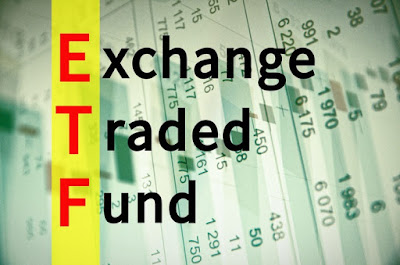If you are looking to invest your money, you have probably stumbled across the term ETF, but might not fully understand what it is or what it means. No problem, the financial consultants at American Investment Planners, LLC are here to answer all of your questions.
Here is what you need to know about ETFs…
What is an ETF?
An ETF, also known as exchange-traded fund, is a diversified collection of assets that trades on an exchange. ETFs are just one of many types of investment funds available, however they do offer some unique qualities.
ETFs attempt to track all types of indexes, industries, or commodities. For example, an ETF might be made up of several securities representative of the technological industry, or of the S&P 500.
Are ETFs the same as mutual funds?
No. While they both represent diversified portfolios, ETFs and mutual funds have some very key differences. For starters, mutual fund transactions go through the company that manages the fund. If you want to sell your shares in a mutual fund, you must wait until the market closes on that day, and you may be subject to a minimum holding period.
ETFs, on the other hand, are traded on the open market, just like a stock. You are making the transaction with another investor, not your brokerage firm. You can buy or sell these funds at virtually any moment, and there is no minimum holding period.
What are the benefits of an ETF?
Exchange-traded funds offer many benefits for investors, including:
- The diversification of a mutual fund
- The trading flexibility of a stock
- Shares are often cheaper than mutual funds
- Generally more tax-efficient than mutual funds
What are the disadvantages of ETFs?
Nothing is perfect, especially in the world of investing. Potential investors should be aware of the possible drawbacks and limitations of ETFs, which include:
- Low trading volume in some markets may take time to match a seller to a buyer.
- ETFs are subject to management fees and other expenses.
- ETFs are subject to market fluctuation and the risks of their underlying investments.
- Due to tracking errors, managing fees, and the volatility of the market, the return on an ETF may not directly match those of the market the ETF is targeting.
- Unlike mutual funds, ETF shares are bought and sold at market price, which may be higher or lower than their NAV, and are not individually redeemed from the fund.
Depending on your financial goals, exchange-traded funds could be a valuable addition to your investment portfolio. Sit down with your financial advisor and ask them if ETFs can help you achieve your goals.
The professional consultants at American Investment Planners, LLC are ready to help. Just call (516) 932-5130 to schedule an appointment, or email info@americaninvestmentplanners.com.

No comments:
Post a Comment